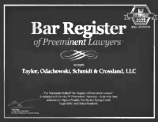Comparing Traditional Wills vs. Living Trusts: Which Is Right for You?
When it comes to estate planning, deciding between a traditional will and a living trust is a crucial choice that can significantly impact how your assets are managed and distributed after your passing.
Traditional Wills
A traditional will is a legal document that outlines how your assets should be distributed upon your death. Here are some key points to consider:
- Simple and Direct: Wills typically name an executor who will manage your estate and ensure that your wishes are carried out.
- Probate Process: Wills must undergo probate, a court-supervised process that validates the will and oversees asset distribution. This process can be time-consuming and costly, potentially leading to delays in your beneficiaries’ receiving their inheritance.
- Public Record: Once a will enters probate, it becomes a matter of public record. This means anyone can access your will and see its contents, which may not be desirable for everyone.
- Guardianship Provisions: Wills allow you to designate guardians for minor children, ensuring they are cared for by someone you trust.
Traditional wills provide a clear legal framework for distributing assets, but they come with the drawbacks of probate and public disclosure.
Living Trusts
Living trusts, on the other hand, offer a more flexible approach to estate planning:
- Avoiding Probate: One of the primary advantages of a living trust is that it bypasses the probate process entirely. This means your assets can be distributed to your beneficiaries more quickly and without the associated costs of probate.
- Privacy Protection: Unlike wills, living trusts are not subject to probate, allowing for a private distribution of your assets. Your beneficiaries can inherit without the details becoming public.
- Management During Incapacity: The successor trustee you designate can step in and manage your assets without needing a court-appointed guardian.
Living trusts offer greater privacy and flexibility, particularly in managing assets during incapacity and avoiding probate.
Which Option Is Right for You?
Deciding between a traditional will and a living trust depends on various factors, including your financial situation, the complexity of your estate, and your personal preferences. Consider the following questions:
- Do you want to avoid probate? If you have concerns about the time and cost associated with probate, a living trust may be the better option for you.
- Do you have minor children? If ensuring guardianship for your children is a priority, a will may be sufficient.
- How complex are your assets? If you have substantial assets or properties in multiple states, a living trust can provide a more organized approach to managing and distributing your estate.
- What level of privacy do you desire? If keeping your financial affairs private is important, a living trust may be preferable.
Ultimately, both traditional wills and living trusts have their advantages and disadvantages. A thoughtful evaluation of your personal circumstances and a discussion with an estate planning attorney can help you choose the best path forward for your unique situation.
Why Choose Taylor Odachowski Schmidt & Crossland, LLC for Estate Planning?
At Taylor Odachowski Schmidt & Crossland, LLC, we bring nearly three decades of experience in estate planning, helping individuals and families make confident decisions about their legacies. Whether you’re considering a traditional will, a living trust, or a combination of both, our knowledgeable team takes a tailored approach to ensure your plan reflects your wishes with clarity and care.
We’re here to support you through every step of the estate planning process, providing peace of mind as you make crucial decisions for the future. If you’re ready to take the next step in securing your legacy, reach out to us at (912) 634-0955 or complete our contact form.



